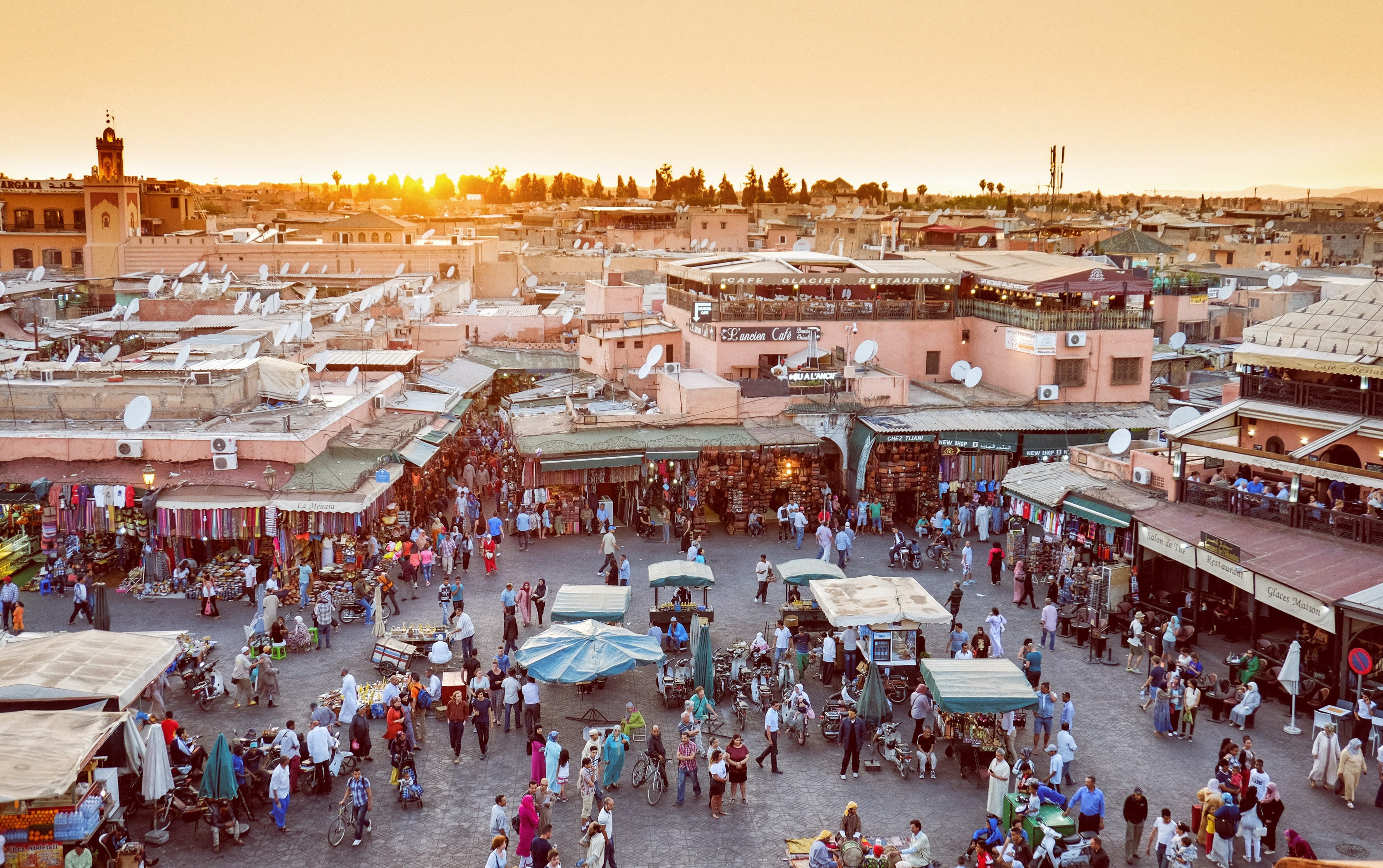Three key issues for cities at COP28
How cities are central in fighting the global climate crisis

The majority of people live in urban areas, and while cities take up only 3% of the Earth's surface, they are responsible for 75% of the planet's greenhouse gas emissions and consume 80% of the world's energy.
Cities have been essential to fighting the climate crisis for a long time, but their importance is only now starting to be recognised in the annual United Nations Conference of the Parties (COP) global climate summits.
Last year, at COP27 in Sharm El Sheikh, urban areas were a central focus for the first time with the inaugural City Day, and the first ever ministerial meeting for cities launching the Sustainable Urban Resilience for the Next Generation (SURGe) initiative, a collaboration between more than 180 global members to empower local climate action within cities.
After last year's success, expectations are high for COP28 to build on what has already been accomplished and push the urban agenda forward. The hope is that states will follow up with even more ambitious action and commitments relevant to cities.
“While cities are at the centre of the climate crisis, they also have the opportunity to be at the centre of the solution.”

What is needed for cities at COP28?
The overall success of the COP28 negotiations hinges on how the summit will respond to the first Global Stocktake report, published in September 2023, which highlights a persistent ‘emissions gap’ and notes that current climate commitments are not in line with pathways needed to limit global warming within agreed targets.
It also outlines the need for system-wide transformation, and the need to phase out fossil fuels, scale up renewable energy, reduce non-CO2 emissions such as methane, preserve nature, end deforestation and embrace sustainable agriculture.
All of these will be discussed at COP28 in Dubai, and a series of responses and key political messages will be produced and referenced in the Final Declaration.
Against this backdrop, a strong outcome for cities at COP28 will largely centre on whether member states will provide ambitious commitments around three key issues.
1. Ambitious transformation
First and foremost, COP28’s urban response to the Global Stocktake needs to be ambitious. Clear, goal-setting roadmaps for urban system transformation are needed – especially urban energy and urban transport systems.
Cities can lead from the front by leaving coal behind and promoting clean energy – but also in the waste system by advancing zero waste policies.
The discourse on urbanisation and climate crisis mitigation is likely to intensify, as cities play a crucial role in both contributing to and mitigating greenhouse gas emissions. There may be robust discussions on innovative urban planning strategies, emission reduction initiatives, and the integration of renewable energy sources within the urban fabric.
COP28 is also anticipated to underscore the importance of adaptation measures within urban centres, acknowledging the inevitability of climate impacts on cities. Discussions may centre on enhancing the resilience of urban infrastructure, implementing nature-based solutions, and fostering community engagement to address the multifaceted challenges posed by the climate crisis in urban environments.
2. Empowering cities
Second, COP28 should work towards empowering cities as subnational governments. This is specifically advocated by the Local Governments and Municipal Authorities (LGMA) constituency, which is the voice of cities and regions in the climate negotiation process.
For the first time at COP28, a Local Climate Action Summit will take place on 1-2 December, which will focus on coordinating action between cities and national governments. More specifically, cities can contribute to:
- National Determined Contributions (NDCs) – Cities can be incorporated as subnational partners in NDCs or similar national-level climate policy or mechanisms. For example, the next generation of NDCs will be submitted in 2025, prior to COP 30, and should include clear and ambitious targets for countries as well as for cities. The Global Covenant of Mayors’ Multilevel Climate Action Playbook for Local and Regional Governments offers advice on how that can be achieved in cities.
- Global Goal on Adaptation (GGA) – COP28 should put GGA into operation using a clear framework, with clear targets for adaptation, which can be framed by the Principles for Locally Led Adaptation, and give cities greater decision-making powers due to their closeness to local communities.
3. Loss and Damage Fund
Finally, the Loss and Damage Fund should be operationalised with cities in mind.
COP28's job is to define what the Loss and Damage Fund really means – for example, by whom it is hosted (eg the World Bank), how is it governed, what countries are paying into it, and what countries and activities would benefit from it?
A climate loss and damage fund for cities should be considered, highlighting the need for cities to engage with this key aspect of climate justice. If that is not an option, alternative financial mechanisms should be identified that are fairly distributed across and between cities to support them in their transitions towards low-carbon and climate-resilient urban futures.
“Cities are ideal arenas for climate action.”

Climate action for cities
The world is rapidly urbanising, with two thirds of people expected to live in cities by 2050.
Cities are facing the challenges of mitigating and adapting to severe direct climate hazards – including heatwaves, flash and surface flooding, rainstorms, extreme hot days and droughts – as well as indirect climate risks such as food insecurity, water shortages, poverty, diseases and other health impacts.
However cities are ideal arenas for climate action for a number of reasons:
- They are concentrations of people and activities able to leverage economies of scale
- They are epicentres of innovation and knowledge hubs which incubates and facilitates dissemination of solutions
- They offer institutional agility and responsiveness, and form social platforms for collective action, fostering a sense of shared responsibility and community engagement
- They provide the physical infrastructure for life and work, with human-made environments that can be either built to low-carbon and net-zero specification, or retrofitted, to meet the targets in the Paris Agreement.
A short history of cities and COP
The United Nations Conference of Parties (COP) is the main decision-making mechanism of the United Nations Framework Convention on Climate Change (UNFCCC), that meets yearly to assess and negotiate measures across member states to tackle climate change.
Cities have not been viewed as a point of reference in COP discussions until recent years.
2016
The first reference to cities was made at 2016's COP22 in Marrakesh, which featured a special event called the Global Climate Action Day on Cities and Human Settlements.
The event highlighted for the first time at COP the importance of cities as key actors in achieving the objectives outlined in the Paris Agreement.
2021
However, it was not until 2021's COP26 in Glasgow that cities, alongside regions, became noted in the COP conversation as an official Observer. For the first time cities weregiven prominence in the Final Declaration: Glasgow Climate Pact as important stakeholders in “addressing loss and damage, building resilience on the ground and contributing towards achieving the Paris Agreement goals”, marking an important shift towards the formalisation of cities’ role in the processes of the Paris Agreement.
2022
This was followed by COP27 in Sharm El Sheikh in 2022, which held the first City Day and the first ever ministerial meeting dedicated to cities.
The meeting was well attended, with ministers and mayors from more than 50 countries, and marked two important new developments: the establishment of regular ministerial meetings on urban development and climate at future COPs; and the launch of the Sustainable Urban Resilience for the Next Generation (SURGe) initiative, a collaboration between over 180 global members.
2023
This year, at COP28 in Dubai, there is an expectation to build on this latest success, with a City Day on 6 December 2023 framed around ‘Multilevel Action, Urbanisation and Built Environment/Transport’ and focusing on urban infrastructure, waste and transport.

“COP28 will be a pivotal moment in the global discourse on the climate crisis, and urban environments will undoubtedly be a central focus.”
About the author
Professor Catalina Turcu
Professor of Sustainable Built Environment, The Bartlett School of Planning, UCL
Catalina Turcu is an interdisciplinary scholar by training (public policy, urban planning, architecture) and interest (sustainability). Her most recent research looks at the SDGs, food, climate and health in the context of cities. She advises regularly governments and international organisations, including the World Bank, OECD, UN and WHO, on urban sustainability aspects.
© UCL The Bartlett 2023



